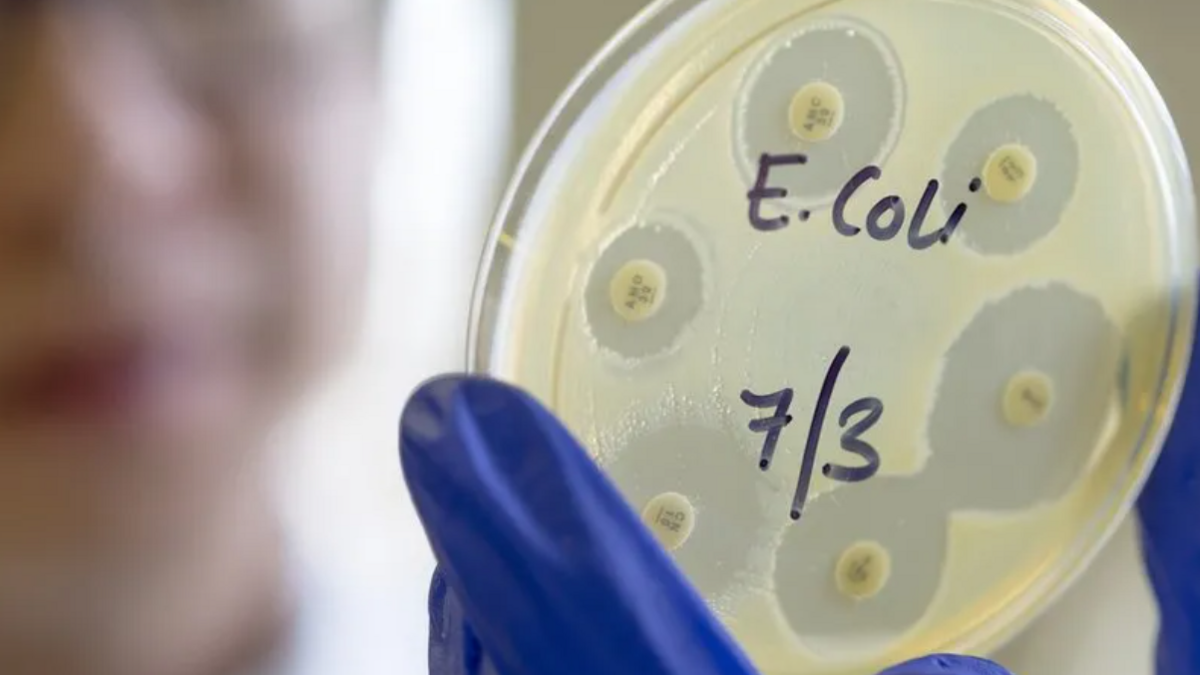Person dies in UK E. coli outbreak linked to salad

- Published
One person in England has died linked to the ongoing E. coli outbreak, the UK Health Security Agency has said.
The person died in May and had underlying health conditions, the agency said.
Another person in England, who also had underlying health conditions, died within 28 days of being infected with the current strain, but the UKHSA says information suggests only "one of these deaths is likely linked to their STEC infection".
The E. coli outbreak is thought to be caused by some supermarket sandwiches containing salad leaves.
All the cases reported so far developed symptoms before 4 June and the number of cases being reported is now falling, offering hope the outbreak may have ended.
Several food manufacturers removed some of their products from shelves as a precaution.
The Food Standards Agency said lettuce is the likely source, based on tests.
Darren Whitby, head of incidents at the FSA, said: "Earlier this month, we confirmed that several sandwich manufacturers had taken precautionary action to withdraw and recall various sandwiches, wraps, subs and rolls after food chain and epidemiological links enabled us to narrow down a wide range of foods to a type of lettuce used in sandwich products as the likely cause of the outbreak."
He said work continues to confirm this so that actions can be taken to prevent a re-occurrence.
"This remains a complex investigation and we continue to work with the relevant businesses and the local authorities to ensure necessary steps are being taken to protect consumers," he said.
As of 25 June, there have been 275 recorded cases of E. coli (STEC) O145 across the UK.
So far, 182 cases have been recorded in England, 58 in Scotland, 31 in Wales and four in Northern Ireland. The latter cases are thought to have acquired their infection in England.
At least 122 people have been admitted to hospital for treatment since the start of the outbreak.
The overall number of people affected could still rise because some samples from patients have yet to be tested, experts say, although rates are slowing.
What is E. coli and who is at risk?
E. coli are a diverse group of bacteria that normally live in human and animal intestines.
Some types are harmless but others can make people seriously ill.
The variety in this outbreak, Shiga-toxin-producing E. coli (STEC) O145, can attack the gut's lining.
Symptoms usually take a few days to develop and can include:
diarrhoea that can be bloody
stomach cramps
fever
vomiting
Symptoms can last up to two weeks in uncomplicated cases. Most people recover well but some - such as young children or people with underlying health conditions - can become very unwell.
There is no specific treatment for E. coli infections.
Those infected can usually be cared for at home and most will recover without medical treatment.
People should seek medical help if worried.
To reduce the risk of infection:
Regularly wash your hands with warm water and soap — alcohol gels do not kill all bugs that cause diarrhoeal illness
Wash fruit and vegetables and cook food to the temperatures suggested
If you have symptoms, do not prepare food for others or visit people in hospitals or care homes
Do not return to work, school or nursery until 48 hours after symptoms have stopped